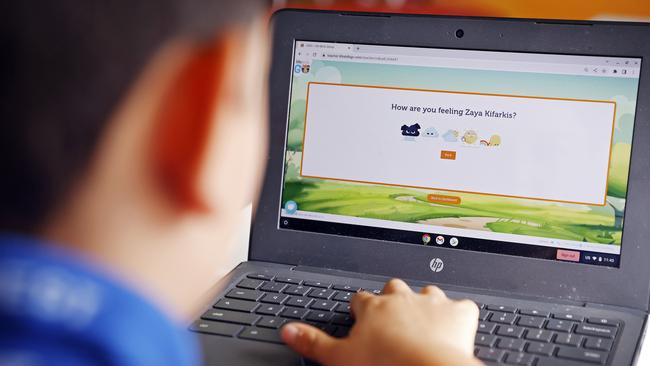Why society’s focus on wellbeing is actually making our kids worse off
The fact is, we have engineered an entire generation into believing they are fragile, helpless, and in constant need of psychological support, writes psychologist Clare Rowe.
Opinion
Don't miss out on the headlines from Opinion. Followed categories will be added to My News.
Childhood therapy is no longer just for the few who truly need it—it’s become an industry, driven by well-intentioned but misguided cultural forces.
Research released by News Corp Australia this week declared that Australian children are in the midst of a mental health crisis. The statistics are stark: 36.9% of young people have sought help from a mental health professional. The response from experts is predictable—more psychologists in schools, increased funding for therapy, and greater access to mental health services.
But what if the real question isn’t how to get more kids into therapy but why they’re there in the first place?
There’s no doubt that some children genuinely suffer from serious mental health conditions requiring professional intervention. After all, I am a practicing child psychologist myself.
But the sheer scale of the numbers—over one-third of all kids—suggests something else is going on. The fact is, we have engineered an entire generation into believing they are fragile, helpless, and in constant need of psychological support.

This shift didn’t happen by accident. It stems from a gradual change in how we talk to children about their emotions, and more importantly, how we expect them to feel.
Schools, parents, and professionals have adopted the idea that mental health struggles should not only be destigmatised but actively anticipated and diagnosed in as many children as possible. And once you start looking for mental health problems, you find them.

Take, for example, the rise of “emotional check-ins” in classrooms.
Children are routinely asked to assess and report their emotions multiple times a day, reinforcing the idea that their feelings must always be closely monitored and analysed.
But if you ask someone often enough whether they are happy, the answer will eventually be no. Imagine if adults were asked to log their emotional state at work five times a day—few would make it through the week without identifying some form of distress. Why do we think children are different?
This practice encourages rumination—excessive focus on one’s problems—which is a well-established contributor to anxiety and depression.
Instead of helping children build emotional resilience, these constant check-ins teach them to fixate on their emotions and perceive normal fluctuations in mood as signs of deeper distress.
A similar phenomenon can be seen in the widespread use of “mental health surveys” in schools and healthcare settings.
Abigail Shrier, in her book Bad Therapy, echoes this concern, arguing that therapy—once a rare and serious intervention—has become a rite of passage.
Instead of teaching resilience, we have conditioned kids to see normal developmental struggles as disorders.
A bad day becomes depression. Worry before a test becomes an anxiety disorder.
Awkwardness in social settings is labelled neurodivergence. Therapy should be a targeted intervention for those who truly need it—not a routine part of growing up.
It’s not just parents or pop psychology driving this.
Instead of focusing on literacy and numeracy, schools now double as therapy hubs, staffed with ‘well-being officers’ and mandatory mindfulness sessions—while educational standards slide.
Teachers, rather than prioritising their core subjects, are expected to act as mental health monitors, flagging every emotional fluctuation as a potential crisis.
And then there’s the industry itself.
The demand for child psychologists and therapists has skyrocketed, and with it, an explosion in diagnoses. This isn’t to suggest bad intent, but the incentives are clear: the more children in therapy, the more funding flows into mental health services, the more professionals are hired, and the more the system reinforces itself. The process feeds on itself.
This hyper-focus on children’s mental health has come at a cost. Instead of preparing kids to face life’s inevitable difficulties, we are teaching them they are ill-equipped to handle them. The rise of therapy culture has paralleled an increase in youth mental health struggles, not a decrease. A child who learns to see themselves as fragile will become fragile.
The response to this crisis should not be to funnel even more kids into therapy. It should be to question why they are there at all. We need to stop pathologising childhood and return to the basic principles of resilience, responsibility, and personal agency. Children don’t need to be protected from every emotional discomfort—they need to be taught how to manage it.
If we continue down this path, we won’t just have a mental health crisis—we will have a generational crisis of emotional dependency, where young people are less equipped than ever to face the world. It’s time to rethink our approach before we manufacture another generation of therapy clients.
Clare Rowe is a Sydney-based psychologist




